Related Research Articles

Raymond Roman Thierry Polański is a French and Polish film director, producer, screenwriter, actor and convicted sex offender. He is the recipient of numerous accolades, including an Academy Award, two British Academy Film Awards, ten César Awards, two Golden Globe Awards, as well as the Golden Bear and a Palme d'Or.
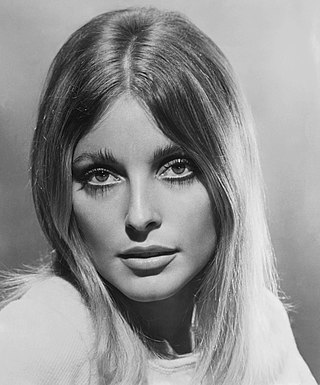
Sharon Marie Tate Polanski was an American actress and model. During the 1960s, she appeared in advertisements and small television roles before appearing in films as well as working as a model. After receiving positive reviews for her comedic and dramatic acting performances, Tate was hailed as one of Hollywood's most promising newcomers, being compared favorably with the late Marilyn Monroe.
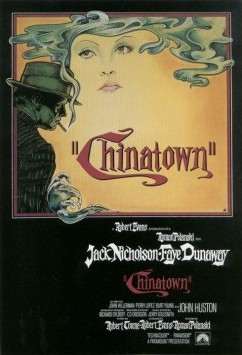
Chinatown is a 1974 American neo-noir mystery film directed by Roman Polanski from a screenplay by Robert Towne. The film stars Jack Nicholson and Faye Dunaway. It was inspired by the California water wars: a series of disputes over southern California water at the beginning of the 20th century that resulted in Los Angeles securing water rights in the Owens Valley. The Robert Evans production, released by Paramount Pictures, was Polanski's last film in the United States and features many elements of film noir, particularly a multi-layered story that is part mystery and part psychological drama.

Robert Dennis Harris is a British novelist and former journalist. Although he began his career in journalism and non-fiction, he is best known for his works of historical fiction. Beginning with the best-seller Fatherland, Harris focused on events surrounding the Second World War, followed by works set in ancient Rome. His most recent works are varied in settings but are mostly set after 1870.

Olivier Assayas is a French film director, screenwriter and film critic. Assayas is known for his eclectic filmography, consisting of slow-burning period pieces, psychological thrillers, neo-noirs, and comedies. He has directed French, Spanish, and English-language films with international casts. The son of filmmaker Jacques Rémy, Assayas began his career as a critic for Cahiers du Cinéma. There he wrote about world cinema and its film auteurs, who later influenced his work. Assayas made several short films, and made his feature debut with Disorder in 1986.
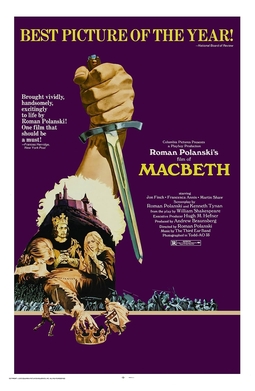
Macbeth is a 1971 historical drama film directed by Roman Polanski, and co-written by Polanski and Kenneth Tynan. A film adaptation of William Shakespeare's tragedy of the same name, it tells the story of the Highland lord who becomes King of Scotland through treachery and murder. Jon Finch and Francesca Annis star as the title character and his wife, noted for their relative youth as actors. Themes of historic recurrence, greater pessimism and internal ugliness in physically beautiful characters are added to Shakespeare's story of moral decline, which is presented in a more realistic style.

Repulsion is a 1965 British psychological horror thriller film directed by Roman Polanski, and starring Catherine Deneuve. Based on a story written by Polanski and Gérard Brach, the plot follows Carol, a withdrawn, disturbed young woman who, when left alone in the apartment she shares with her sister, is subject to a number of nightmarish experiences. The film focuses on the point of view of Carol and her vivid hallucinations and nightmares as she comes into contact with men and their desires for her. Ian Hendry, John Fraser, Patrick Wymark, and Yvonne Furneaux appear in supporting roles.

Knife in the Water is a 1962 Polish psychological thriller film co-written and directed by Roman Polanski in his feature debut, and starring Leon Niemczyk, Jolanta Umecka, and Zygmunt Malanowicz. Its plot follows a husband and wife who are accompanied on a boating trip by a young male hitchhiker, who spurs a number of escalating confrontations between the couple.

The Pianist is a 2002 biographical film produced and directed by Roman Polanski, with a script by Ronald Harwood, and starring Adrien Brody. It is based on the autobiographical book The Pianist (1946), a memoir by the Polish-Jewish pianist, composer and Holocaust survivor Władysław Szpilman. The film was a co-production by France, the United Kingdom, Germany and Poland.

Jack Taylor is an American actor known best for featuring in many European low-budget exploitation movies of the 1970s, particularly several directed by Spanish moviemaker Jesús Franco. Born in Oregon City, a suburb of Portland, Oregon, Taylor began acting onstage as a child. During the 1950s, he began appearing in small roles for Los Angeles-based television series before relocating to Mexico and featuring in several movies directed by Federico Curiel.
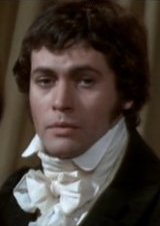
John Nicholas Finch was an English stage and film actor who became well known for his Shakespearean roles. Most notably, he starred in films for directors Roman Polanski and Alfred Hitchcock.
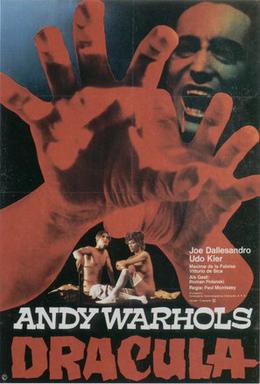
Blood for Dracula is a 1974 horror film written and directed by Paul Morrissey, and starring Udo Kier, Joe Dallesandro, Maxime McKendry, Stefania Casini, Arno Juerging and Vittorio de Sica. Upon its initial 1974 release in West Germany and the United States, Blood for Dracula was released as Andy Warhol's Dracula.
F. X. Feeney was an American writer and filmmaker.
Morderstwo is a short film written and directed by Roman Polanski in 1957. This was Polanski's first completed student short at the State Film School in Łódź, Poland. The film takes place predominantly in darkness and in one room. It introduces ideas Polanski revisited throughout his career. Alternative English-language titles for the film are Murder and A Murderer.
Rozbijemy zabawę was a short film written and directed by Roman Polański in 1957. According to Roman Polanski's autobiography, the film was a stunt which nearly got him thrown out of the Łódź film school; Polanski had organized a groups of "thugs" to go to a school dance and begin disrupting it. As the band played "When the Saints Go Marching In," some students were beaten up. The ironic alternate title is "Break Up the Dance".
A Toothy Smile is a 1957 Polish short film written and directed by Roman Polanski. A man walks down the exterior staircase of some building, He passes a small window. He looks in, and there a young woman standing at a washbasin, drying her hair with a towel that covers her face. The man is interrupted by a door opening, the occupant begins bringing out empty bottles. The man starts down the stairs, only to return to the window after the door has closed. He again looks in the window and is surprised.
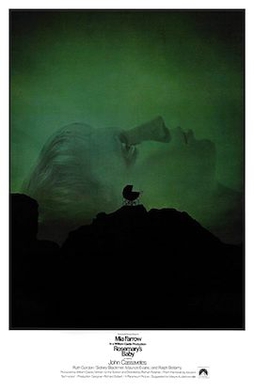
Rosemary's Baby is a 1968 American psychological horror film written and directed by Roman Polanski, based on Ira Levin's 1967 novel. The film stars Mia Farrow as a newlywed living in Manhattan who becomes pregnant, but soon begins to suspect that her neighbors are members of a Satanic cult who are grooming her in order to use her baby for their rituals. The film's supporting cast includes John Cassavetes, Ruth Gordon, Sidney Blackmer, Maurice Evans, Ralph Bellamy, Patsy Kelly, Angela Dorian, and Charles Grodin in his feature film debut.
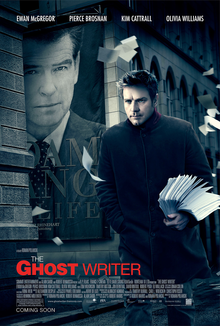
The Ghost Writer is a 2010 neo-noir political thriller film directed by Roman Polanski. The film is an adaptation of a 2007 Robert Harris novel, The Ghost, with the screenplay written by Polanski and Harris. It stars Ewan McGregor, Pierce Brosnan, Kim Cattrall and Olivia Williams.

On March 10, 1977, 43-year-old film director Roman Polanski was arrested and charged in Los Angeles with six offenses against Samantha Gailey, a 13-year-old girl: unlawful sexual intercourse with a minor, rape by use of drugs, perversion, sodomy, a lewd and lascivious act upon a child under the age of 14, and furnishing a controlled substance to a minor. At his arraignment, Polanski pleaded not guilty to all charges, but later accepted a plea bargain whose terms included dismissal of the five more serious charges in exchange for a guilty plea to the lesser charge of engaging in unlawful sexual intercourse with a minor.
Alastair McIntyre was a British film editor and sound editor, best known for his association with the director Roman Polanski, with whom he worked on six films between 1965 and 1979. He was involved in over 40 film productions in a career that spanned three decades, including 14 credits as an editor.
References
- ↑ Mazierska, Ewa (15 June 2007). Roman Polanski: The Cinema of a Cultural Traveller. I.B.Tauris. p. 195. ISBN 978-1-84511-296-7.
- ↑ Ain-Krupa, Julia (2010). Roman Polanski: A Life in Exile. ABC-CLIO. p. 18. ISBN 978-0-313-37780-8.